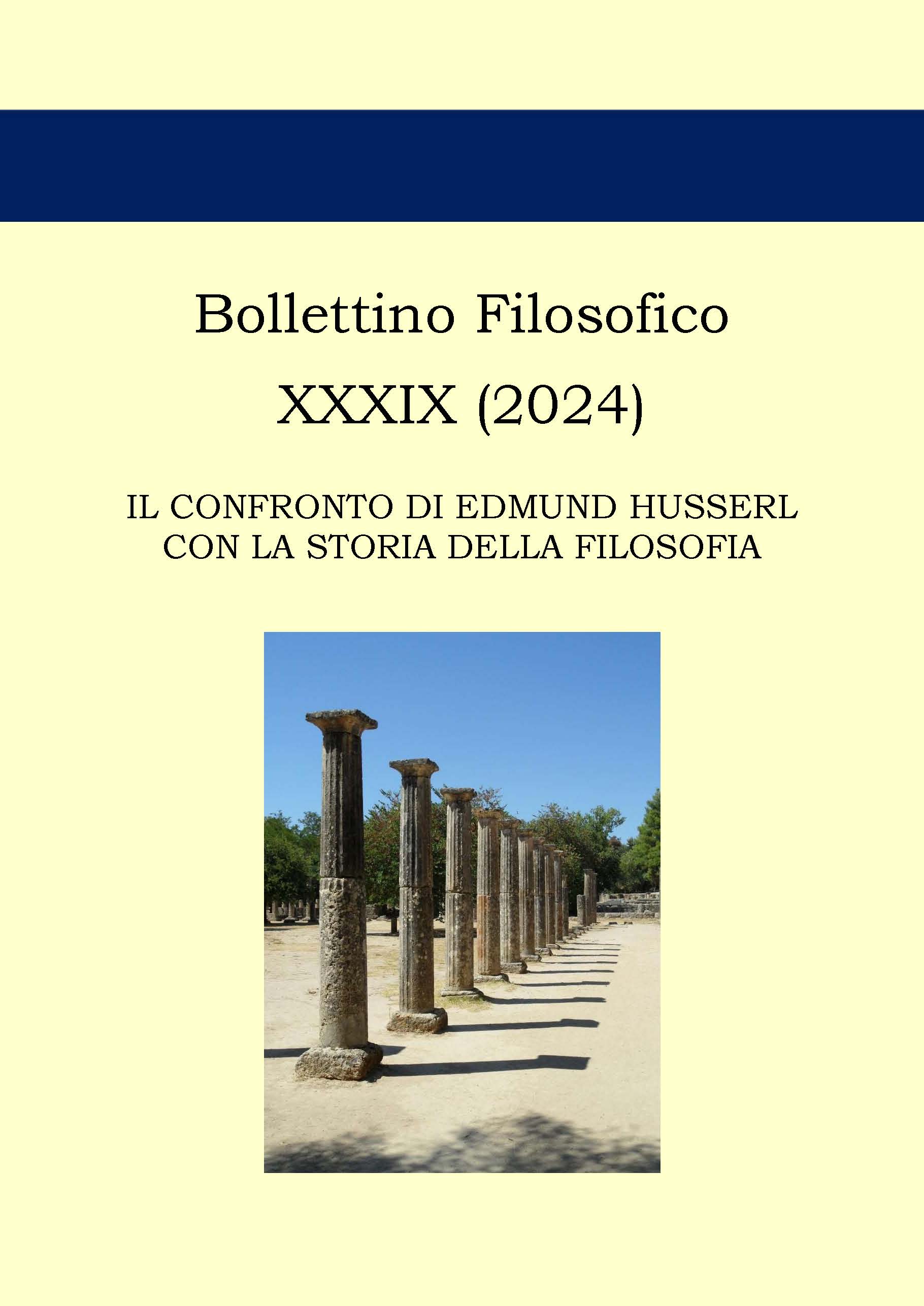A Sometimes Sympathetic Indictment. The Face-to-Face Confrontation between Husserlian Transcendental Phenomenology and Kant’s Transcendentalism
DOI:
https://doi.org/10.6093/1593-7178/11397Abstract
This essay develops a comparison between Kant’s transcendental idealism and Husserlian transcendental phenomenology. The theme of the transcendental is at the centre of Husserl’s interest, who aims to highlight the teleological motif that emerges in the history of modern philosophy. In particular, it was shown how in the transition from static phenomenology to genetic-constitutive phenomenology Husserl’s detachment from Kant manifested itself with increasing clarity, through Husserl’s criticism of Kant’s method of transcendentalism, his theory of knowledge, the so-called revolutionary Copernican turn, the Kant’s doctrine of the faculties of the soul and presupposition of absolute things in themselves, which introduced psychologistic and anthropologistic aspects into Kant’s thought. The profound diversity that reigns between Kantian idealism and the peculiar form of idealism claimed by Husserl concerns, above all, the respective conception of experience and transcendental subjectivity, from which derives the Husserlian need to reformulate the field of transcendental aesthetics, privileging from the constitutive point of view the theme of embodiment and intersubjectivity.
Keywords: Achievement, Constitution, Experience, Phenomenology, Transcendental, Transcendentalism
Downloads
Downloads
Published
How to Cite
Issue
Section
License
The author retains the copyright of his work whilst granting anyone the possibility “to reproduce, distribute, publicly communicate, publicly exhibit, display, perform and recite the work”, provided that the author and the title of the journal are cited correctly. When submitting the text for publication the author is furthermore required to declare that the contents and the structure of the work are original and that it does not by any means compromise the rights of third parties nor the obligations connected to the safeguard of the moral and economic rights of other authors or other right holders, both for texts, images, photographs, tables, as well as for other parts which compose the contribution. The author furthermore declares that he/she is conscious of the sanctions prescribed by the penal code and by the Italian Criminal and Special Laws for false documents and the use false documents, and that therefore Bollettino Filosofico is not liable to responsibilities of any nature, civil, administrative or penal, and that the author agrees to indemnify and hold Bollettino Filosofico harmless from all requests and claims by third parties.

